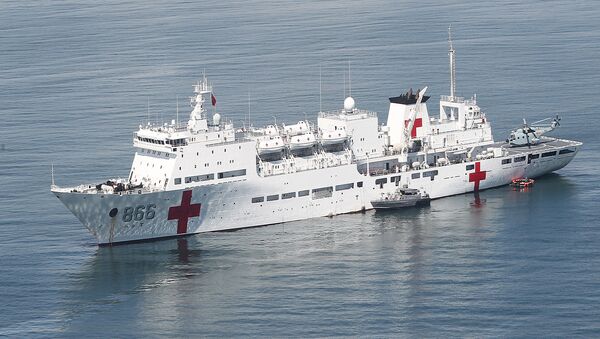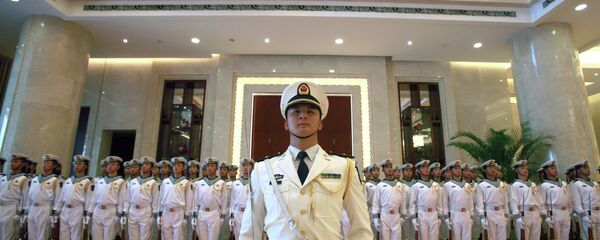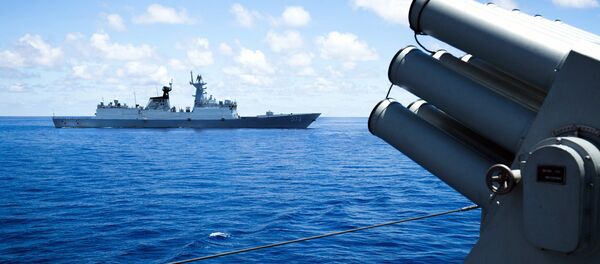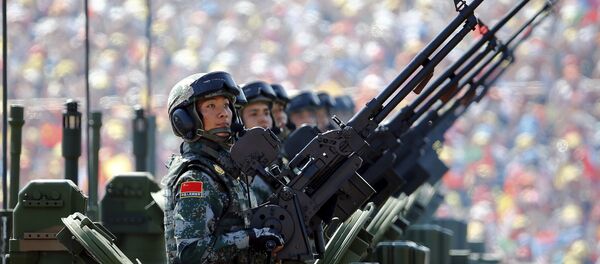This year, Peace Ark will visit eight countries during its 150-day journey. However two particular stops of the hospital vessel make this mission different to the previous trips: Sri Lanka and Djibouti are its two important stops along China’s 21st Century Maritime Silk Road. Besides, on August 1, the Chinese military inaugurated its first overseas naval facility in Djibouti.
"It is highly possible that the Peace Ark will not berth at the military facility, as the docks have yet to be built. And that makes more sense, given the mission’s purpose is for the ship to be easily accessed by the local population at a civilian port. Nevertheless, sending the Peace Ark less than a month after the inauguration sends the unmistakable signal that the PLA (People's Liberation Army) Navy’s presence in Djibouti is about making positive contributions to the world," Mathieu Ducastel, deputy director of the Asia and China program at the European Council on Foreign Relations wrote in his article for South China Morning Post.
"The presence of the Peace Ark in Djibouti is a reminder that the PLA Navy is also trying to invest in soft power to gain support from local populations for China’s global ambitions," Mathieu Ducastel said.
Alexei Maslov, head of the School for Oriental Studies at the Russian Higher School of Economics University however argued with the European expert.
"This is not quite an accurate assertion, as the 'soft power' or 'soft investments' are usually used to exert certain pressure on local business environment or on local ruling political elites," he told Sputnik China.
"The presence of the Navy here is more of a reminder of China's 'hard' power. For decades, China had been betting on 'soft power' and it was working at first. However Beijing had been constantly criticized, by American experts amongst others, for its inability to defend its achievements militarily," Alexei Maslov said.
Mathieu Ducastel also suggested that "China’s naval diplomacy will continue to be an important element of the country’s effort to give substance to the new Maritime Silk Road."
"Concretely, the project is about ensuring secure and fast shipping along sea lanes that already exist, but where traffic will intensify. Hence direct investment, including often through mergers and acquisitions, focus on port infrastructure, shipping and logistics companies," he wrote.
Meanwhile, Alexei Maslov told Sputnik that China is planning to noticeably expand its network of naval bases, mostly in the Indian Ocean and in the Middle East.
It is essential for strengthening China's maritime security and for safeguarding of its cargo.
"With the distant missions of its naval hospitals, China wants others to get used to its presence in various regions and to demonstrate that it is a naval or a military naval power, which has not been previously acknowledged," he told Sputnik.
This is however happening against a very serious naval confrontation between China and the US, he noted.
"It is very important to China to be able to support its fleet and have the means for its operations as far as possible off its own shores and as close as possible to the US. And this is the main purpose of its ships’ long-distance missions," Maslov concluded.





